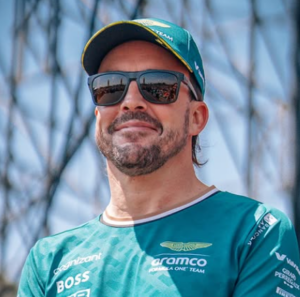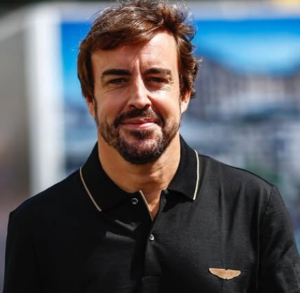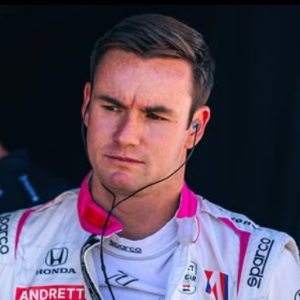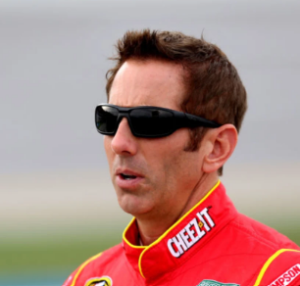Michael Schumacher’s career in Formula 1 remains one of the most impressive in the sport’s history
Fernando Alonso’s tribute to Schumacher’s ability to never underperform speaks volumes about the German driver’s unparalleled consistency and his relentless pursuit of perfection.
Schumacher’s legacy continues to inspire drivers and fans alike, serving as a reminder that excellence in Formula 1 is not just about speed, but also about consistency, resilience, and the ability to always give your best, no matter the situation.
Fernando Alonso’s move to overtake Michael Schumacher on the outside of 130R in the 2005 Japanese Grand Prix is not just a highlight of his career; it is emblematic of the fearless, bold approach he has brought to the sport throughout his time in Formula 1.
From his early years as a Minardi test driver to his championship-winning seasons with Renault, Alonso has always believed in his ability to challenge the best and has never been afraid to take risks in order to prove it.
Today, as one of the most experienced and respected drivers on the grid, Alonso’s legacy is secure, and the fearless spirit that defined his career remains as strong as ever. His incredible move at Suzuka in 2005 will forever be remembered as one of the defining moments of his career and a symbol of his unrelenting desire to succeed against all odds.

Table of Contents
Fernando Alonso’s Fearless Approach to F1
The 2005 Japanese GP Overtake
One of the defining moments of Fernando Alonso’s career came during the 2005 Japanese Grand Prix at Suzuka, a race that is remembered not just for its drama but for one specific, audacious overtaking maneuver.1
Alonso’s move to overtake Michael Schumacher around the outside of the 130R corner has since been regarded as one of the most fearless and bold moves in Formula 1 history.
This maneuver not only showcased Alonso’s daring driving style but also set the stage for his rise to the top of the sport.
“Life is about passions. Thank you for sharing mine”
Michael’s last race. Brasil, 25 November 2012.@F1 @MercedesAMGF1 #TeamMichael #KeepFighting
Pics: Wolfgang Wilhelm pic.twitter.com/cs5JfxiLXp
— Michael Schumacher (@schumacher) November 25, 2024
The Beginning of Alonso’s F1 Journey
- Fernando Alonso’s path to F1 was not one of immediate success, but rather a steady progression that was driven by his belief in his own abilities.
- He officially entered Formula 1 in 2001 as a test driver for Minardi, a team that, at the time, was far from being competitive.
- Schumacher, on the other hand, had just started his reign of dominance, having won the 2000 title with Ferrari, which was the beginning of his five consecutive world championships from 2000 to 2004.
- While Schumacher was setting records and establishing himself as one of F1’s greatest, Alonso was quietly honing his skills with Minardi, never doubting his potential to challenge the established elite.
- As he reflects on his early years in F1, Alonso admits to a “kamikaze” approach to racing. His unrelenting belief in his abilities and his refusal to accept that he was slower than Schumacher led him to develop a fearless approach on track.
- “When I got to F1, Michael Schumacher was dominating the sport, but I never thought I was slower than him,” Alonso said during his appearance on the High Performance podcast in August 2023. This unshakable confidence in his own talent would serve as the foundation for his future success.

Fernando Alonso: Champion’s Legacy
Fernando Alonso’s journey in F1 has been anything but conventional.2
From his early years with Minardi to his dominant years with Renault, his stints at Ferrari, and his current role with Aston Martin, Alonso’s career has been marked by resilience, talent, and an unwavering belief in his own abilities.
His victories, his rivalries, and his fearless approach to racing have solidified his place as one of the sport’s greats.
As Alonso enters the twilight of his career, his legacy is already secured. His two World Championships in 2005 and 2006, as well as his many podium finishes and memorable moments, have left an indelible mark on the history of Formula 1.
But it is his fearless, kamikaze-style approach to racing that will be remembered most fondly by fans and pundits alike.

The 2005 Japanese Grand Prix: The Overtake That Defined a Career
The 2005 Japanese Grand Prix at Suzuka was a pivotal moment in Fernando Alonso’s career. By this time, Alonso had moved from Minardi to Renault, and he was beginning to show that he had the potential to challenge for the title. Schumacher, meanwhile, was still dominating with Ferrari, but it was clear that Alonso was closing in on him.
The 130R corner, one of the most daunting and high-speed turns on the Formula 1 calendar, would become the site of an overtaking move that would live in the annals of motorsport history.
As Alonso and Schumacher approached the 130R corner, the gap between the two drivers was narrow. In what many would consider a high-risk, high-reward move, Alonso dove to the outside of Schumacher, making a daring pass that stunned spectators and commentators alike.
The precision, the timing, and the bravery required to execute such a move were extraordinary. At that moment, Alonso showed the world that he was not just a future champion – he was already capable of beating the best in the business.
Reflecting on this iconic moment, Alonso admitted that it was a product of his “kamikaze” approach to racing. His fearlessness, combined with an almost unshakeable belief in his abilities, led him to take a chance that many other drivers might have considered too risky.
That overtaking maneuver remains one of the most memorable moments in F1 history, a testament to Alonso’s fearless attitude and skill behind the wheel.

Fernando Alonso: Rivalry That Never Reached Its Peak
- Despite their intense rivalry, Fernando Alonso and Michael Schumacher never truly had the chance to compete against each other at the peak of their respective careers in equal machinery.3
- When Schumacher was dominating F1 with Ferrari, Alonso was driving for the backmarker Minardi team, far from having the opportunity to challenge the German driver.
- However, as Alonso made his move to Renault in 2003, Schumacher’s Ferrari team began to face increasing competition from other manufacturers, notably Renault, as Alonso’s career gained momentum.
- The timing of their careers meant that Alonso and Schumacher’s rivalry did not unfold as one might have expected.
- When Alonso was driving for a competitive Renault team in 2005 and 2006, Schumacher’s Ferrari had begun to falter. Schumacher’s dominance with Ferrari had started to wane, and Alonso was in the perfect position to take advantage of the situation.
- In 2005, Alonso ended Schumacher’s five-year championship streak by winning the World Championship with Renault. He followed that up with a second consecutive title in 2006, further solidifying his place as one of F1’s emerging stars.
- While Schumacher and Alonso were undoubtedly rivals, their careers did not intersect in the way many fans had hoped. The timing was simply off – Alonso’s rise came as Schumacher’s dominance began to fade.
- Had they both been in equally competitive teams at the same time, the rivalry between the two could have been one of the most captivating in F1 history.
The Self-Belief That Fueled Alonso’s Career
Fernando Alonso’s journey to the top of Formula 1 is characterized by a fierce self-belief that never wavered, even when the odds were stacked against him.
His ability to overcome challenges and prove doubters wrong has been a hallmark of his career. From his early years with Minardi, to his rise at Renault, and his eventual return to the top with teams like Ferrari and, later, Aston Martin, Alonso has consistently demonstrated a refusal to accept anything less than success.
When discussing his mindset during his early years in F1, Alonso stated, “Maybe it was just a kamikaze approach to F1 and the start of my career. But I never doubted that having the same car, maybe I could challenge him one day.”
This unwavering confidence in his abilities played a critical role in his eventual success, culminating in his two World Championships in 2005 and 2006. His belief that he could challenge Schumacher, despite the German’s dominance, was a key factor in his rise to the top.
Even now, at 43 years old, Alonso remains one of the quickest drivers on the grid. His ability to extract the maximum performance from any car, regardless of age, is a testament to his enduring talent and his commitment to constant improvement.
His time with Aston Martin has shown that he is still as capable as ever, maintaining a level of competitiveness that belies his age and experience.

Fernando Alonso’s Tribute to Schumacher’s Unyielding Consistency
In February 2023, Fernando Alonso reflected on his time battling against Michael Schumacher for the Formula 1 World Championship.
Despite their fierce rivalry on the track, Alonso had nothing but admiration for Schumacher’s ability to deliver peak performance, no matter the conditions. Speaking to PlanetF1, Alonso made it clear that the thing that impressed him the most about Schumacher was his ability to never underperform.
Alonso explained that, unlike many of his rivals in Formula 1, Schumacher did not have “bad days.” He stated that in his own career, and particularly in his early years in F1, he had witnessed other drivers experience off days or struggles in certain conditions.
These were the moments when drivers could capitalize and gain valuable points, but with Schumacher, that opportunity never seemed to arise. No matter the challenges, whether it was an imperfect car, tire issues, or unfavorable weather conditions, Schumacher found a way to finish near the front of the pack, often securing second or third place.
The Formula 1 Era That Defined Schumacher’s Legacy
Schumacher’s career spanned across multiple generations of Formula 1, beginning in 1991 with Jordan and later moving to Benetton, where he won his first two World Championships.
However, it was his time with Ferrari that truly cemented his place in F1 history. Joining the Scuderia in 1996, Schumacher was tasked with bringing Ferrari back to the pinnacle of the sport.
At the time, the team was not the dominant force it would become under his leadership. Despite this, Schumacher’s exceptional driving talent and relentless work ethic allowed him to elevate Ferrari to an era of unmatched dominance.
Between 2000 and 2004, Schumacher won five consecutive World Championships, a feat that many believed was impossible to replicate. His remarkable ability to perform at the highest level in any situation, regardless of the condition of the car, tires, or track, became a defining characteristic of his career.
Even in seasons when Ferrari was not the fastest on the grid, Schumacher consistently delivered podium finishes, ensuring that the team remained a formidable contender.

Fernando Alonso: The Return to Formula 1 with Mercedes
After retiring from Formula 1 in 2006, Schumacher made a comeback with Mercedes in 2010.
Although his second stint was not as successful as his first, with the Mercedes team still developing its car, Schumacher’s return was met with respect and admiration.
His time with Mercedes did not result in another championship, but his persistence and commitment to the sport were never in question. The competition had changed, and so had the nature of Formula 1, but Schumacher’s relentless pursuit of perfection and his ability to consistently challenge at the highest level remained evident.
Alonso’s words about Schumacher’s unparalleled consistency are even more meaningful in the context of his return. Even in the later stages of his career, Schumacher continued to fight hard, securing several top-ten finishes and helping Mercedes establish itself as a future powerhouse in the sport.
A Benchmark for Future Generations
Michael Schumacher’s legacy extends far beyond the championships and records he set during his time in Formula 1. His unmatched consistency, work ethic, and resilience have set a benchmark for future generations of drivers.
His name is synonymous with excellence in the sport, and his influence can still be felt today.
Alonso’s recognition of Schumacher’s consistency underscores the impact the German driver had on his competitors.
Even those who fought against him saw him as the standard to strive for, an unbreakable figure in the sport who could not be shaken, regardless of the challenges.
Schumacher’s legacy is not just about victories and championships, but about the determination to never underperform, to always deliver the best performance possible, regardless of the circumstances.
Also Read: Fernando Alonso and Taylor Swift: Are They Dating in Real Life? New Video, Instagram, Bio and More




